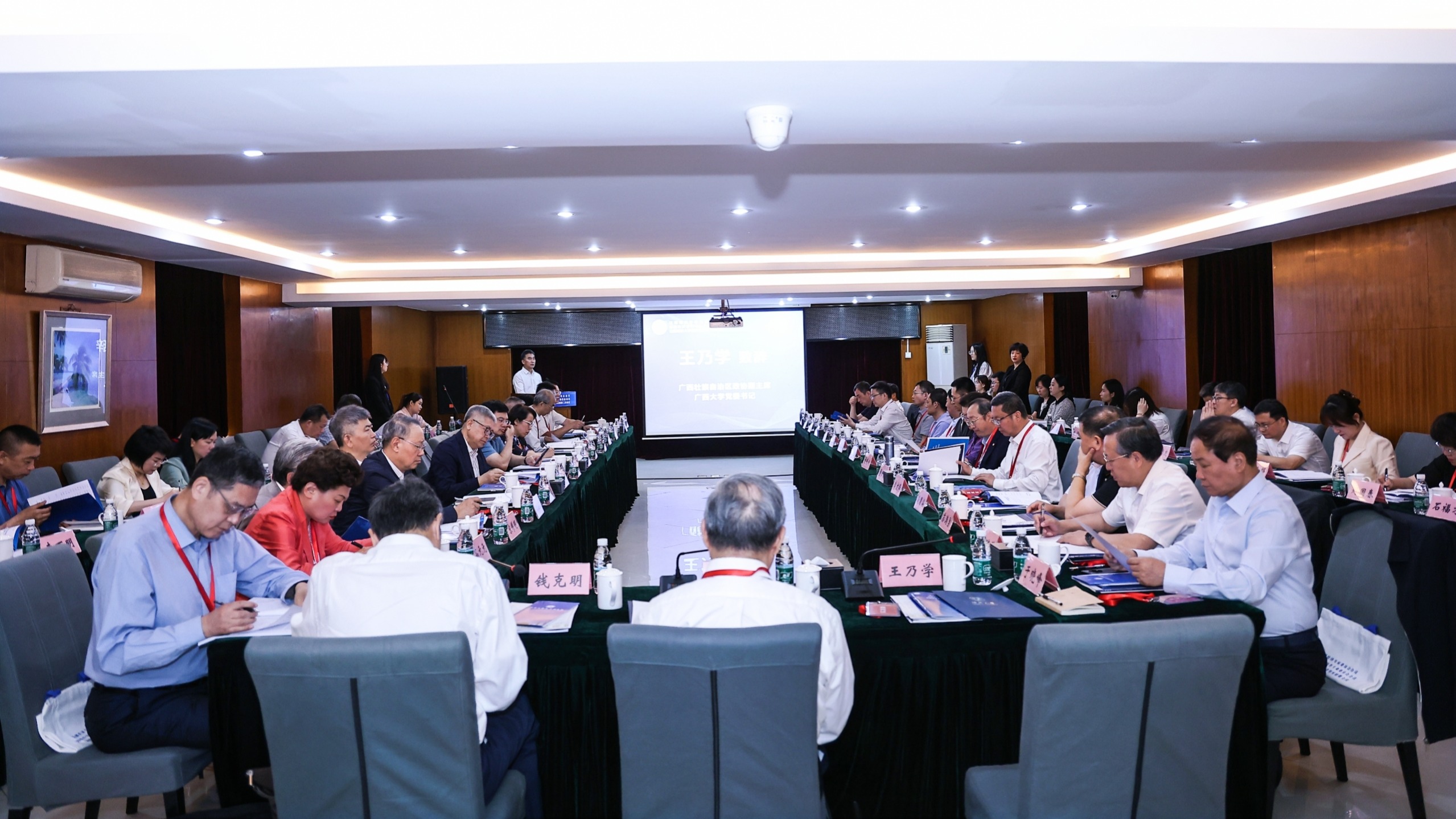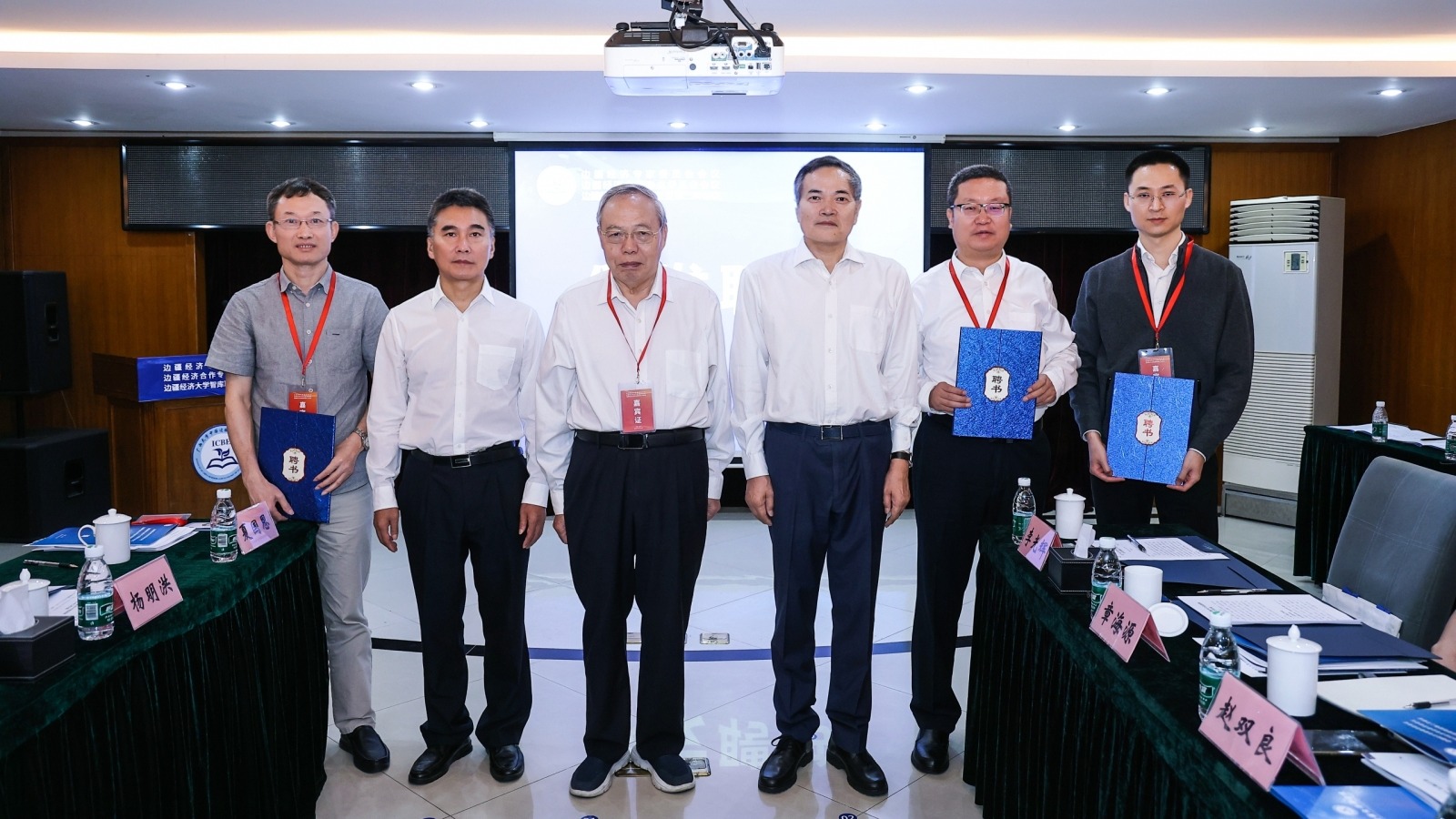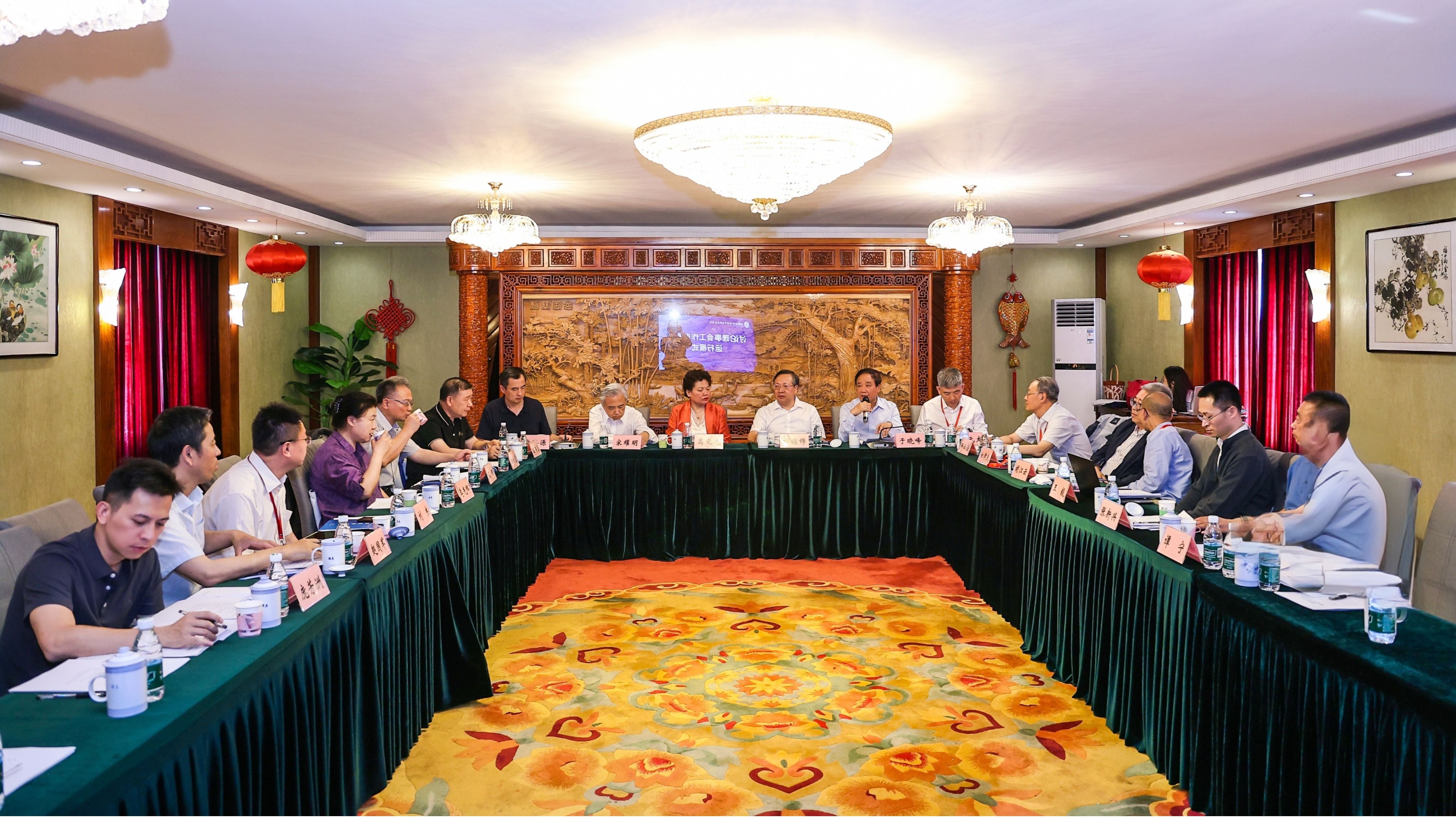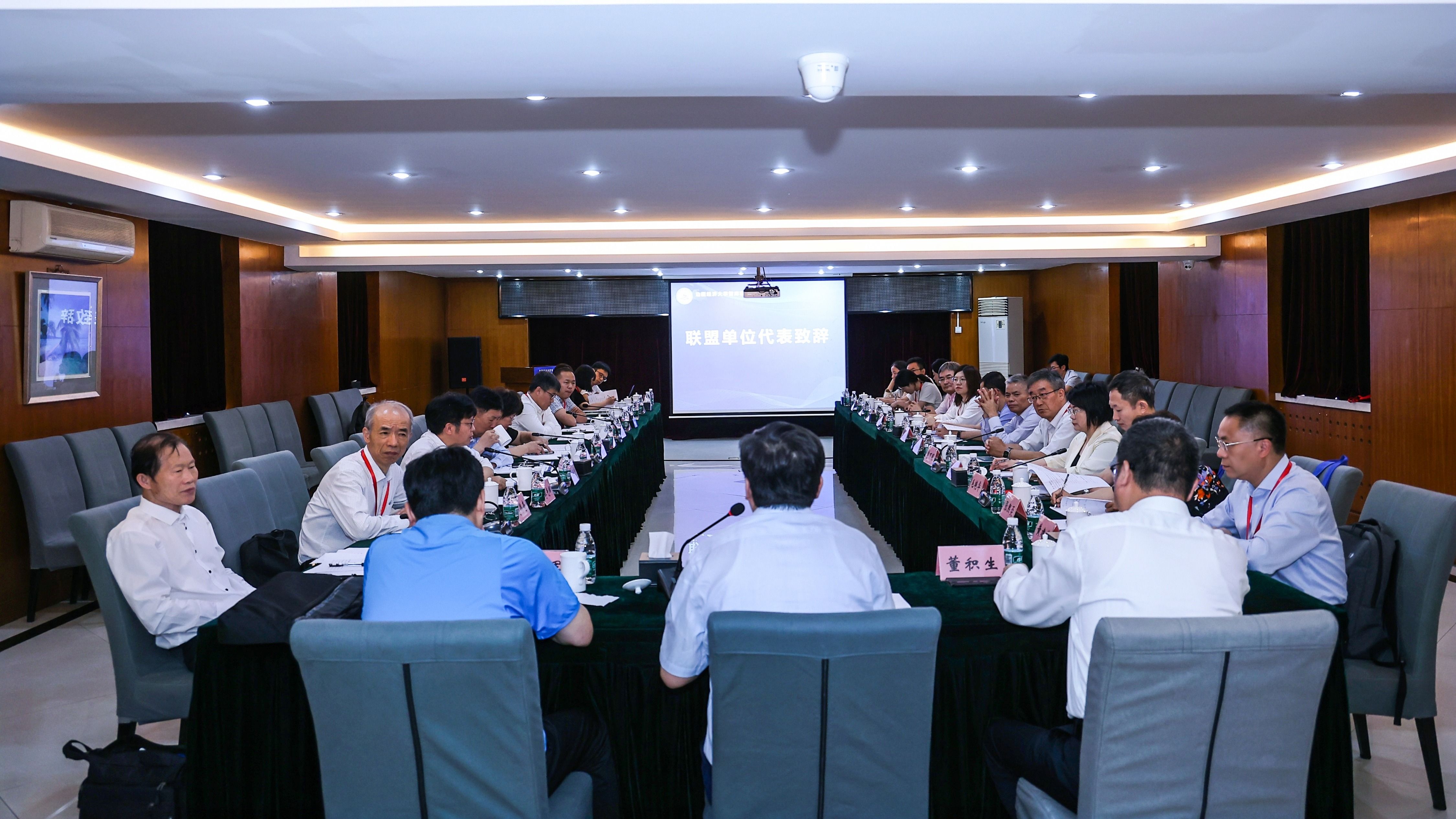Recently, the Second Meeting of the Professional Committee of Borderland Economic Cooperation of China Association for International Economic Cooperation, The Borderland Economic Experts Committee Meeting and the Think Tank Alliance of The Borderland Economy University, jointly organized by the Institute of China Borderland Economy of Guangxi University and China-ASEAN School of Economics, were successfully held in Beijing. The attending experts and scholars jointly discussed how to integrate and link national resources, play the leading role of experts, promote the construction of China's borderland economy theoretical system, and guide contemporary China's borderland governance practice. Qian Keming, Member of Standing Committee of the National Committee of the Chinese People's Political Consultative Conference and the Deputy Director of the Committee on Science, Education, Health, and Sports, and Wang Naixue, Vice Chairman of the Political Consultative Conference in Guangxi Zhuang Autonomous Region and Secretary of the CPC GXU Committee, delivered speeches at the opening ceremony. Zheng Xinli, former Deputy Director of the Policy Research Office of the CPC Central Committee, gave a speech titled Cultivating New Productive Forces and New Momentum in Borderland to Focus on Developing Pillar Industries of the Borderland Economy. Xia Guoen, Member of the CPC GXU Committee and Vice President of Guangxi University, presided over the opening ceremony.
Qian Keming stated that the establishment of Borderland Economic Cooperation Professional Committee of China Association for International Economic Cooperation and the Think Tank Alliance of The Borderland Economy University is very necessary. It aligns with the national strategy of expanding openness, deepening international economic cooperation, and accelerating the formation of a new dual circulation development pattern both domestically and internationally. He pointed out that the openness and international economic cooperation in borderland areas have unique characteristics and face many new situations and problems that require collective wisdom and in-depth research. He emphasized that this meeting is of great significance and has far-reaching implications for fully understanding the new prospects for the development and openness of China's borderland regions, creating a new situation in borderland research with Chinese characteristics, and promoting high-quality development in borderland areas. He suggested expanding research on the openness of borderland areas and deepening economic cooperation between borderland regions and neighboring countries, strengthening think tank construction, and promoting deep integration of production, education, research, and application to provide strong talent support for the sustainable and healthy development of the borderland economy.
Wang Naixue acknowledged the six-in-one development model formed by Institute of China Borderland Economy of Guangxi University, which includes building a frontier research team, publishing a set of textbooks, producing a series of research results, releasing an annual report, holding a forum each year, and forming a frontier economic research association. He pointed out that the Think Tank Alliance of The Borderland Economy University should unleash the chemical effect of combining think tank wisdom and borderland region construction, creating a brain trust that serves the development of the borderland economy and a think tank that empowers the construction of borderland areas. He stressed the importance of pooling collective wisdom and strength, fully leveraging the roles of experts as leaders, mentors, and bridges, freeing minds, innovating, and constantly proposing new ideas, new concepts, and new methods to truly solve problems, and persevering to address the main issues and contradictions emerging in the development of China's borderland regions.

The Borderland Economic Experts Committee Meeting
Zheng Xinli stressed that it is necessary and significant to continue to promote the discussion and study of the important spirit of the 20th National Congress of the Communist Party of China on strengthening the construction, promoting prosperity and stability of borderland areas. Focusing on the concept of new quality productivity, first proposed by General Secretary of the CPC Central Committee Xi Jinping at the Symposium on Promoting the comprehensive revitalization of Northeast China in the New Era, he started with improving the quality of factors of productivity, pointed out that new quality productivity must be built on the basis of the latest contemporary technology, and evaluated the level of new quality productivity with labor productivity as the standard. He also pointed out four major paths for the development of pillar industries of borderland economy. The first path is promoting the integration and cluster development of strategically emerging industries in borderland areas. The second is continuing to promote the deep integration of digital technology and borderland economy. The third is actively promoting the construction of modern infrastructure systems in borderland areas. The fourth is the development of borderland industries enabled by high level scientific and technological self-reliance.

The Certificate Award Ceremony
The meeting also included the appointment ceremony for additional members of the Expert Committee of Institute of China Borderland Economy of Guangxi University. Fourteen experts, including Dong Jisheng, Wang Yi, and Mao Yanhua, from high-end think tanks, research institutes, and higher education institutions, were appointed as committee members. The meeting established the Council of the Borderland Economy Cooperation Professional Committee of China Association for International Economic Cooperation, discussed and passed the council's working regulations, the constitution of the Think Tank Alliance of The Borderland Economy University, and procedural rules. Experts at the meeting conducted specialized discussions on collaborative research, talent cultivation, and investigation activities. Experts such as Xing Guangcheng, Member of the Chinese Academy of Social Sciences and Director of the Institute of Chinese Borderland Studies, provided valuable suggestions for the construction and development of Institute of China Borderland Economy of Guangxi University.

The Meeting of Professional Committee of Borderland Economic Cooperation

The Second Meeting of the Think Tank Alliance of The Borderland Economy University
The meeting attracted experts, scholars, and industry elites from across the country to discuss new trends in frontier economic development, share cooperation experiences, and offer strategies for the economic prosperity of borderland regions. Participants included representatives from Ministry of Commerce of the People’s Republic of China, General Administration of Customs of the People’s Republic of China, Chinese Academy of Social Sciences, Development Research Center of the State Council, China Association of Policy Science. Leaders and experts from institutions such as Party School of the Central Committee of CPC, Sun Yat-sen University, University of International Business and Economics, Guangxi University, Yanbian Korean Autonomous Prefecture in Jilin Province, Liaoning Academy of Social Sciences, Guangxi Academy of Social Sciences, and Gansu Academy of Social Sciences also attended the meeting, totaling over 60 participants.
Translated by:Hu Fang
Written by:Chi Wucheng、Lin Yiling
Reviewed by:Ma Junfeng、Qin Cheng
Edited by:Li Yeqiu
Editor-in-Charge:Yang Pu
Editor-in-Chief:Luo Cheng、Li Guanghui


 ADD:No.100 Daxue Road, Nanning, Guangxi, China
ADD:No.100 Daxue Road, Nanning, Guangxi, China Tel/Fax:+86-0771-3186687
Tel/Fax:+86-0771-3186687 Email: gse@gxu.edu.cn
Email: gse@gxu.edu.cn